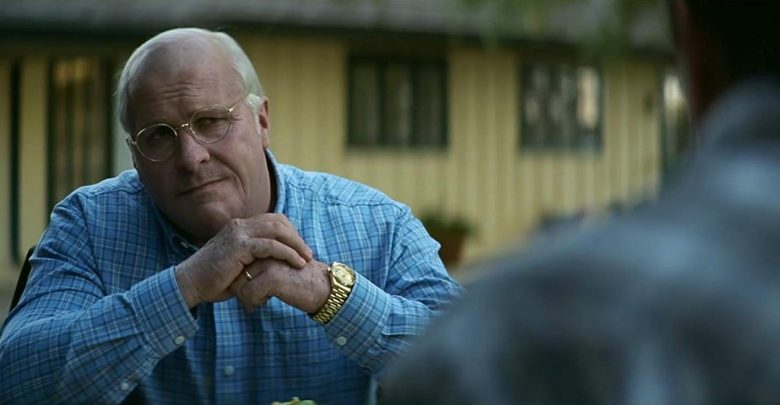Film Review: Adam McKay’s “Vice”
 IMDb
IMDbIn its Honest Trailers video for the eight best picture nominees of the 91st Academy Awards, YouTube channel Screen Junkies pokes fun at Vice for its message that unchecked authority is bad. While this message is decidedly simplistic, I think it’s worth reiterating, and Vice does a good job of demonstrating why the abuse of power by a select few is pernicious.
The film loosely follows the life journey of former U.S. Vice President Dick Cheney (Christian Bale), from his inauspicious beginnings as a Yale dropout to him becoming one of the world’s most powerful and influential individuals in the 2000s. The portrait drawn of Cheney is immensely critical, depicting him as totally lacking any fixed set of values beyond an unquenchable thirst for power.
In one key scene, a young Cheney asks Donald Rumsfeld (Steve Carell), his mentor at the White House, what it is exactly that they believe in, to which Rumsfeld responds by laughing raucously and shutting a door in Cheney’s face. The answer is clear: these men are power-hungry schemers who will do anything for their own gain, regardless of any sense of right and wrong.
Vice is both entertaining and original. The clever use of fourth-wall-breaking jokes, intertextuality, and metacommentary makes it funny but doesn’t get in the way of the story. When the credits start rolling halfway through the film, it’s not only hilarious but incredibly fitting: Cheney’s life story could have stopped here and it would have been an accomplished one, but that’s not how it went down in real life.
Writer-director Adam McKay manages to make this political movie not solely didactic. While it’s definitely pushing a clear message (that unchecked authority is bad, and that therefore Cheney is a bad person), it does so with nuance and room for interpretation. By spending about half of its runtime on his life before the vice-presidency, Vice explores the many life experiences, historical events, and social structures that arguably shaped Cheney into the man he became.
This allows us to ask: how much is American ideology responsible for the creation of Dick Cheney? By American ideology, I’m especially referring to individualism, American patriotism, and deregulated capitalism. It’s the ideology that Vice’s Cheney is raised in, and it’s the one he later upholds through his political actions and behind-doors scheming. In the film’s out-of-tone epilogue, Cheney addresses the audience directly, defiantly saying, “It has been my honour to be your servant. You chose me, and I did what you asked.”
Throughout Vice, the stacking of teacups and saucers emerges as a metaphor for Cheney’s political career, but I think this metaphor also extends to American ideology itself. In an America searching for confident leaders in the wake of 9/11, Cheney comes along to help maintain the porcelain tower’s delicate balance.
All in all, Vice is an enjoyable piece of political satire, and while it criticizes Cheney and the American right as a whole, it does so in a humanizing way. The film seems to have a sort of admiration for Cheney and everything he was able to do in politics. He’s depicted less as a supervillain and more as a human being who was simply able to become villainously powerful through sheer willpower, determination, and the influence of his society.
The path to unchecked authority lay in front of Vice’s Cheney, and he just had the balls to take it.




